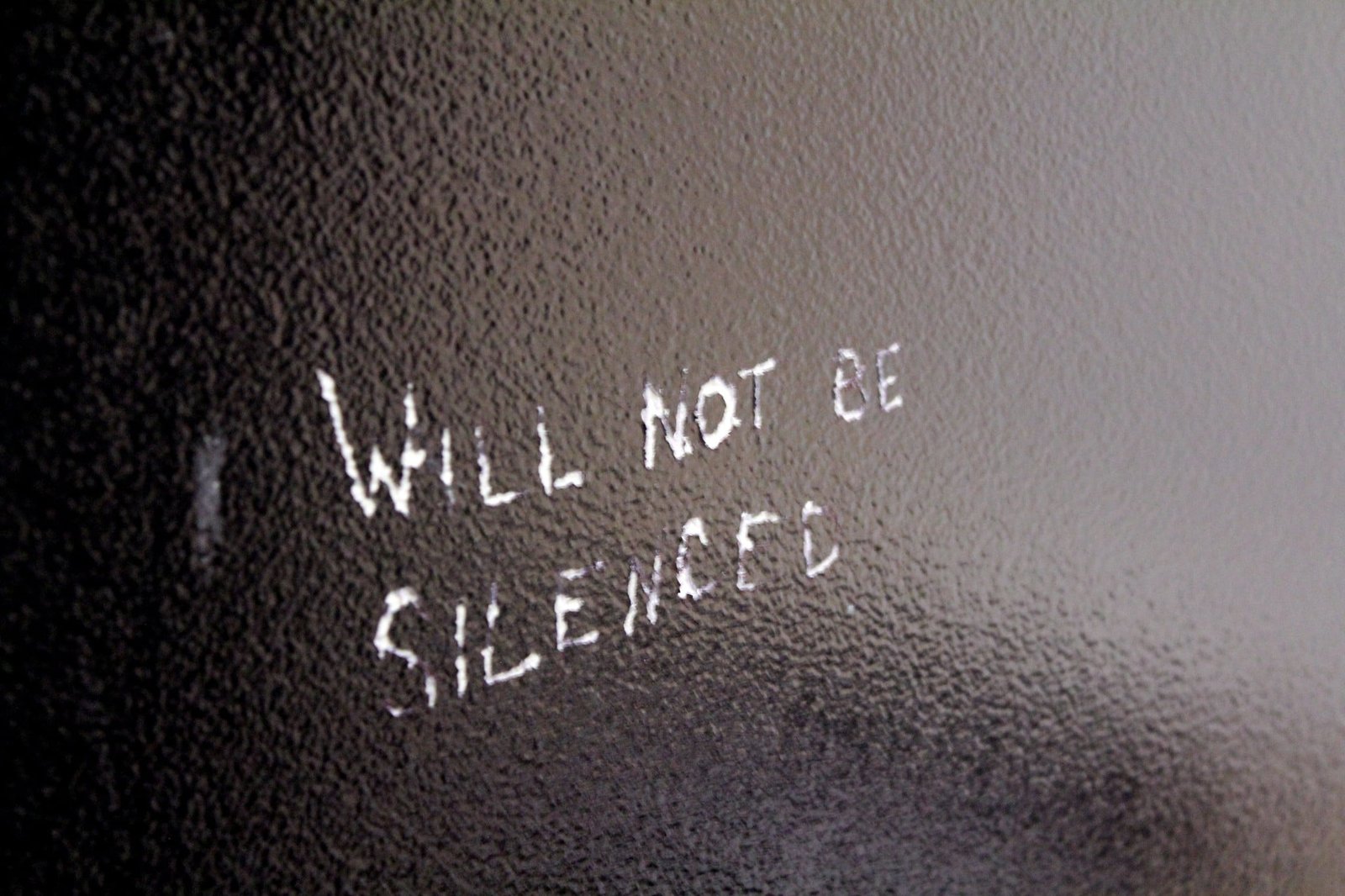Andreia Nobre explores the history of how and why men began silencing women.
“I’ve been thinking about women’s speech and how we’re automatically disbelieved, whether we accuse someone of rape or tell a doctor we’re in pain. Anybody know how and why this evolved socially? What are the deep historical roots and why?”
Anonymous Twitter User
I have a passion for anthropology. I’ve been reading everything I can for the last ten years about how we are diminished, why and since when. I’d like to discuss some of my findings, drawn from expert sources. London College’s research on ancient humans living in equality, or the research about how women in early agricultural societies were stronger than top elite athletes for harbouring the bulk of agricultural labour. Information which can be combined with books such as the Myth of Women’s inferiority, by Evelyn Reed.
There are a lot of things to consider. We have to think how, before civilisation, women were just the female of the species, bearing children, but also that they held real power and validity, because they could know they bear children. Men couldn’t know if they fathered children at the time, because monogamy was not a thing.
That became important when agriculture was a meaningful source of food, instead of relying on hunting and food gathering. Because you need land to grow food. It’s not efficient to move to a different patch of land all the time. So you keep land. That’s private property.
Private property was probably created before civilisations and patriarchy. The evidence for that is that women certainly were the ones who created agriculture in the first place. But private property in a matrilineal society means that the land goes to women first. Because, again, women could know they had children.
While you, as a man, are alive and tell other tribes to get off your land that you worked on, everything is fine – apart from the wars you have to wage to keep land. But after you die, there’s nothing preventing other tribes from invading it. Unless you have a system of rules that will punish them if they try. So men created rules.
One is monogamy. If a woman is “attached” to one man only, this man will be more sure he has fathered a child. So then he can say: I will leave this land to my child. This land belongs to this surname and my child has it, so it belongs to them too.
Notice how surnames can be often rooted to places. It’s for ownership (of land, of a trade). In Portugal, my grandmother was born and registered without a surname in 1915 because she would only get one after marrying. From her husband. All of this is a very violent way of coercion because there were no benefits for women in it. So, to break women and force them to accept these rules, men used force, physical aggression. It was the only way.
But women fought all the time. So when the first rules were imposed and followed they needed new rules to keep the system working. That’s when the silencing of women’s voices began. First, you raise women to be submissive. You tell them they are lesser. Women who defy it are punished, physically, psychologically. The ones who still dare to speak, you can call them liars, you force them to shut their mouths.
You can record achievements by men and not by women, hiding their participation in history. You can appropriate their achievements behind their backs, and who’s to speak for them? Men were in the public life, women in the house.
When all of this fails, women are killed, and then erased from history, so other women will never know what’s going on. Raise women to be isolated from other women. To distrust other women. And to see themselves as only one aspect of a man’s life, but not as their own individual. Silencing women became necessary because the male narrative, their justification for having power over women, is fragile. They could not even survive as a species without their female counterparts. Imagine trying to have children while treating women as just walking incubators?
Unfortunately, I guess that’s exactly what patriarchy did. We were commodified. We became “private property” of men. Isn’t it how we women all feel so many times? That they think they own us? Our bodies, our voices, our achievements. And when we speak, then comes the backlash. We are discredited, dismissed, disavowed. We need to keep speaking. Or shouting – whatever works better.








Hi there! I could have sworn I’ve been to this site before but after browsing through some of the articles I realized it’s new to me. Anyhow, I’m certainly pleased I came across it and I’ll be bookmarking it and checking back regularly.